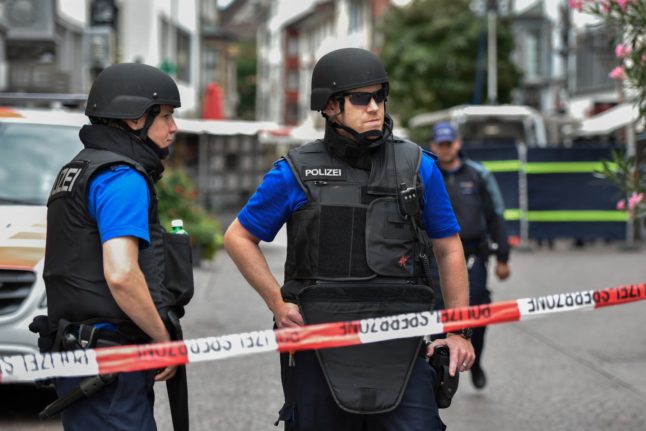Until 2016, expulsion of foreign criminals from Switzerland was optional, but a national referendum held in November of that year made this move compulsory.
A narrow majority of 53 percent of Swiss voters accepted the controversial proposal of the right-wing Swiss People’s Party (SVP), which argued at the time that “a disproportionate number of criminals in Swiss prisons are foreigners” and that “the Swiss have the right to feel safe in our own country”.
The law was finally introduced in 2016, which is a long time to enact a legislation approved by the voters, but its implementation involved defining precisely the offences that would result in deportation.
It was finally determined that the law would apply to foreigners who have committed serious crimes warranting at least a three-year prison sentence, including murder, rape, serious sexual assault, violent acts, armed robbery, drug trafficking and people trafficking, as well as abuse of the Swiss social security system.
After deportation, the foreigner can’t return to Switzerland for five to 15 years — depending on the severity of the crime and other circumstances.
Deportation rates
Over the past three years, the deportation rate for foreign offenders has averaged around 60 percent – in other words 60 percent of foreign criminals who could be legally deported because their crimes are serious enough are actually sent home, according to data that public broadcaster RTS collected from the Federal Statistical Office (FSO).
However, this figure varies greatly from one canton to another.
Geneva, for instance, expels the highest number of criminal foreigners (77 percent), because “the population of criminals is very largely made up of people passing through who have no connection with Switzerland”, said the canton’s Attorney General, Olivier Jornot.
The rate of deportations also exceeds the national average of 59.7 percent in Basel-Country (72.7), Bern (66.7), and Vaud (62.3).
On the other hand, the lowest rate of deportations (27.6) is in Neuchâtel, with Valais (37.8), Fribourg (45.4), and Thurgau (53.9) falling below the national average as well.
Why is there such a disparity among the cantons?
The current law gives judges some “elbow room” in this matter, including not expelling foreigners born in Switzerland, or those who come from a country that does not take back its nationals.
While Geneva’s Jornot chooses “to apply severity”, for his counterpart in Neuchâtel, Pierre Aubert, “it is our duty to apply this law with moderation”.
READ MORE: Court finds Swiss immigration authorities cannot order deportation for criminal offences
Who are the deported criminals?
As an example, statistics for 2018 show that out of 1,693 foreigners who were expelled, 500 were EU citizens, while the rest came from other countries.
Most (88 percent) were convicted of drug dealing or robbery, and 60 percent for inflicting serious injuries on another person.
You can find more official data in this PDF document.
However, in 2019, of 2,883 foreigners who committed crimes which required deportation, only 1,658 people were actually expelled, inciting complaints from the SVP.
READ MORE: Swiss right-wing party wants mandatory deportation of criminal foreigners



 Please whitelist us to continue reading.
Please whitelist us to continue reading.
Member comments